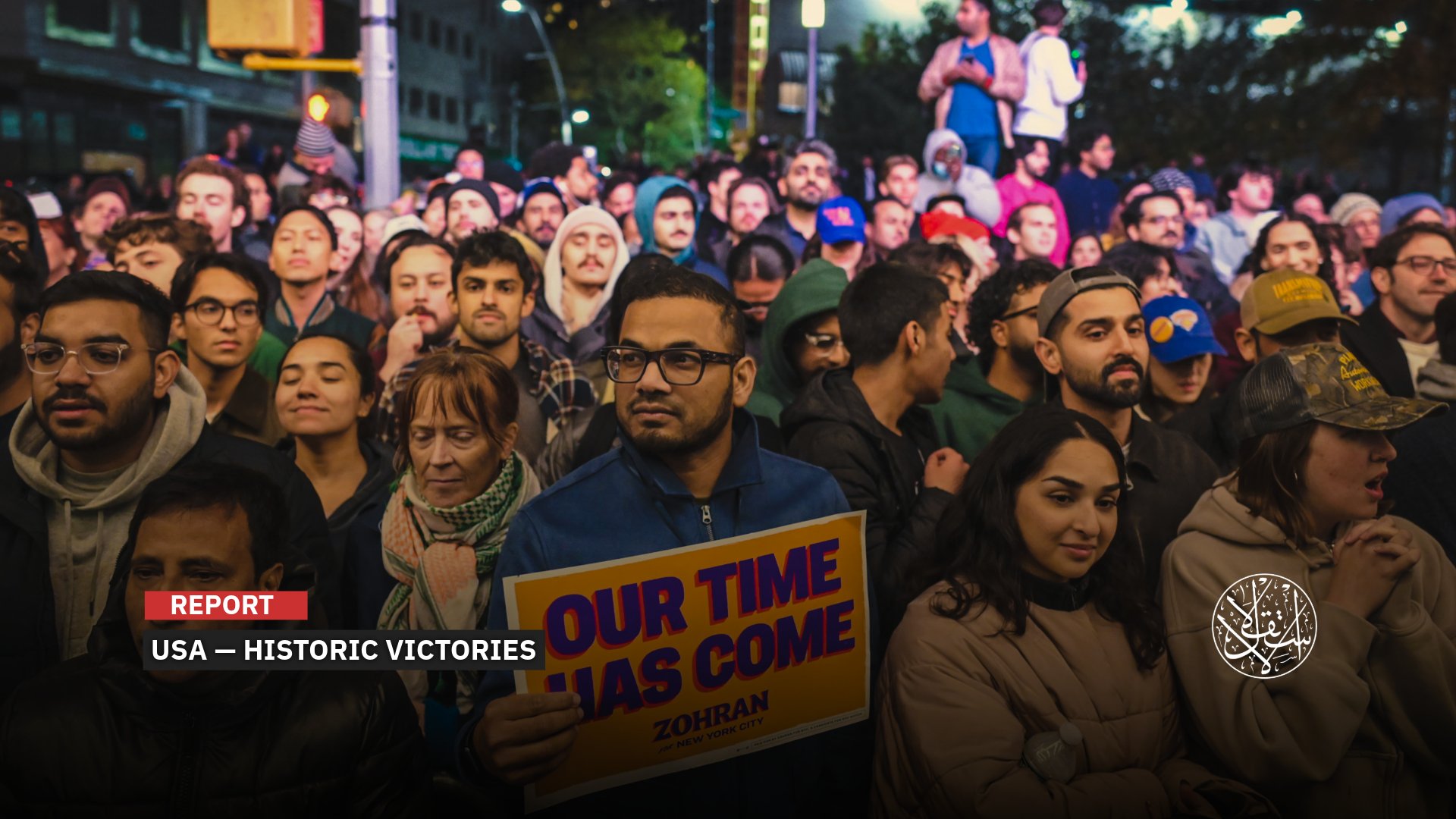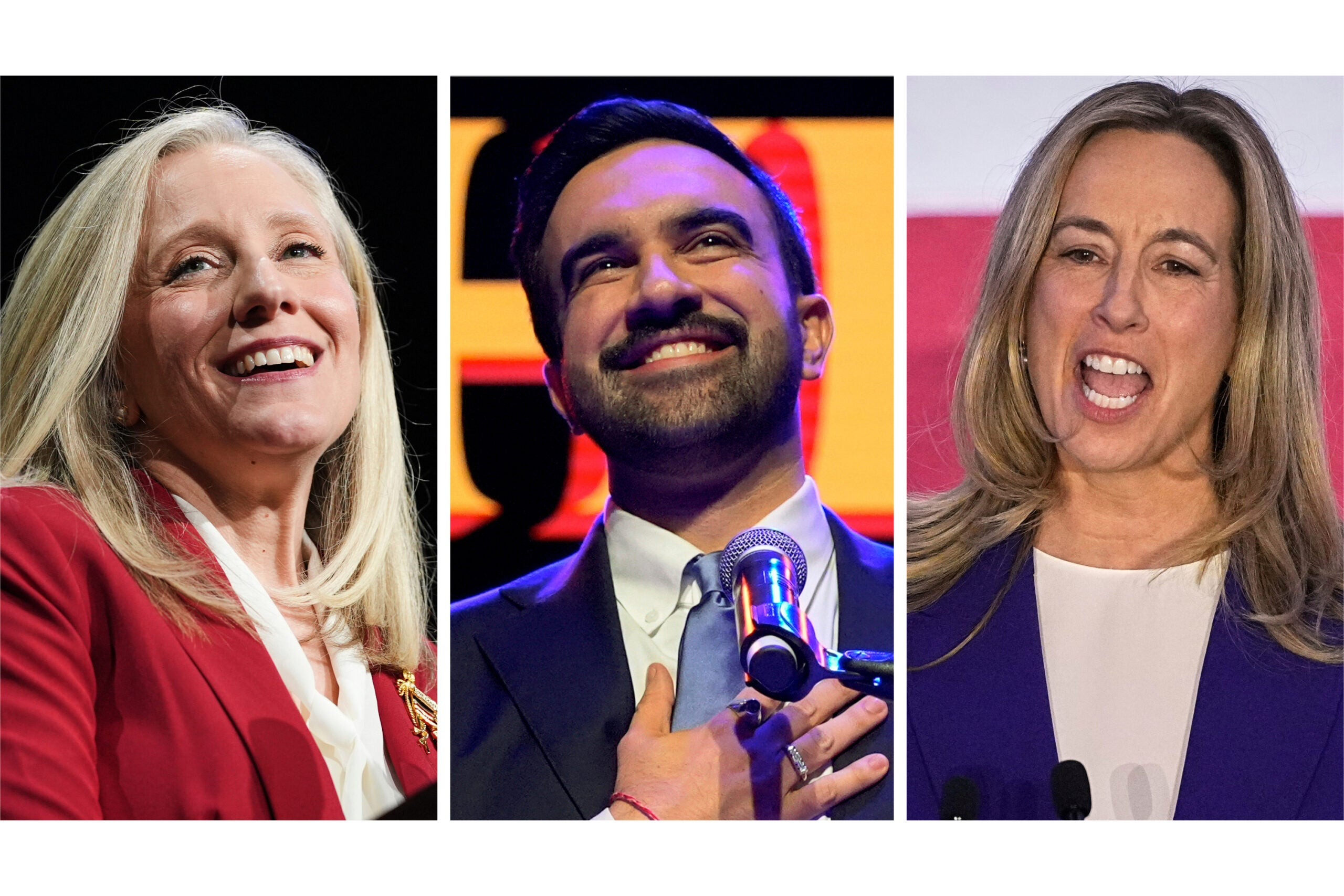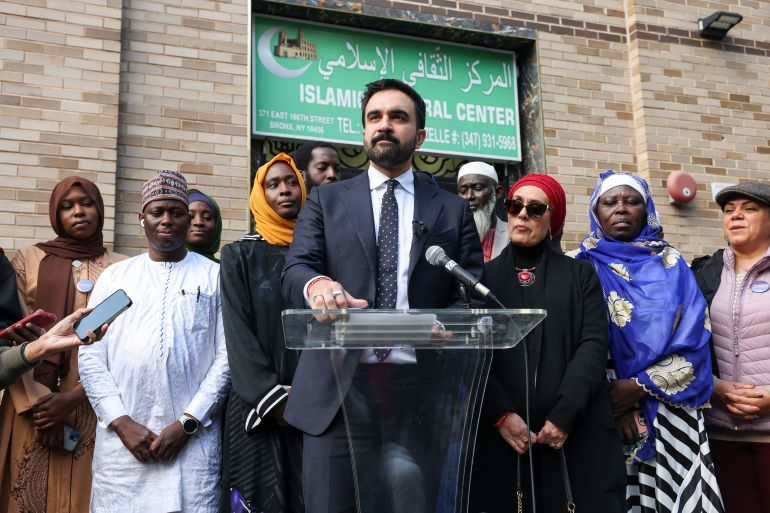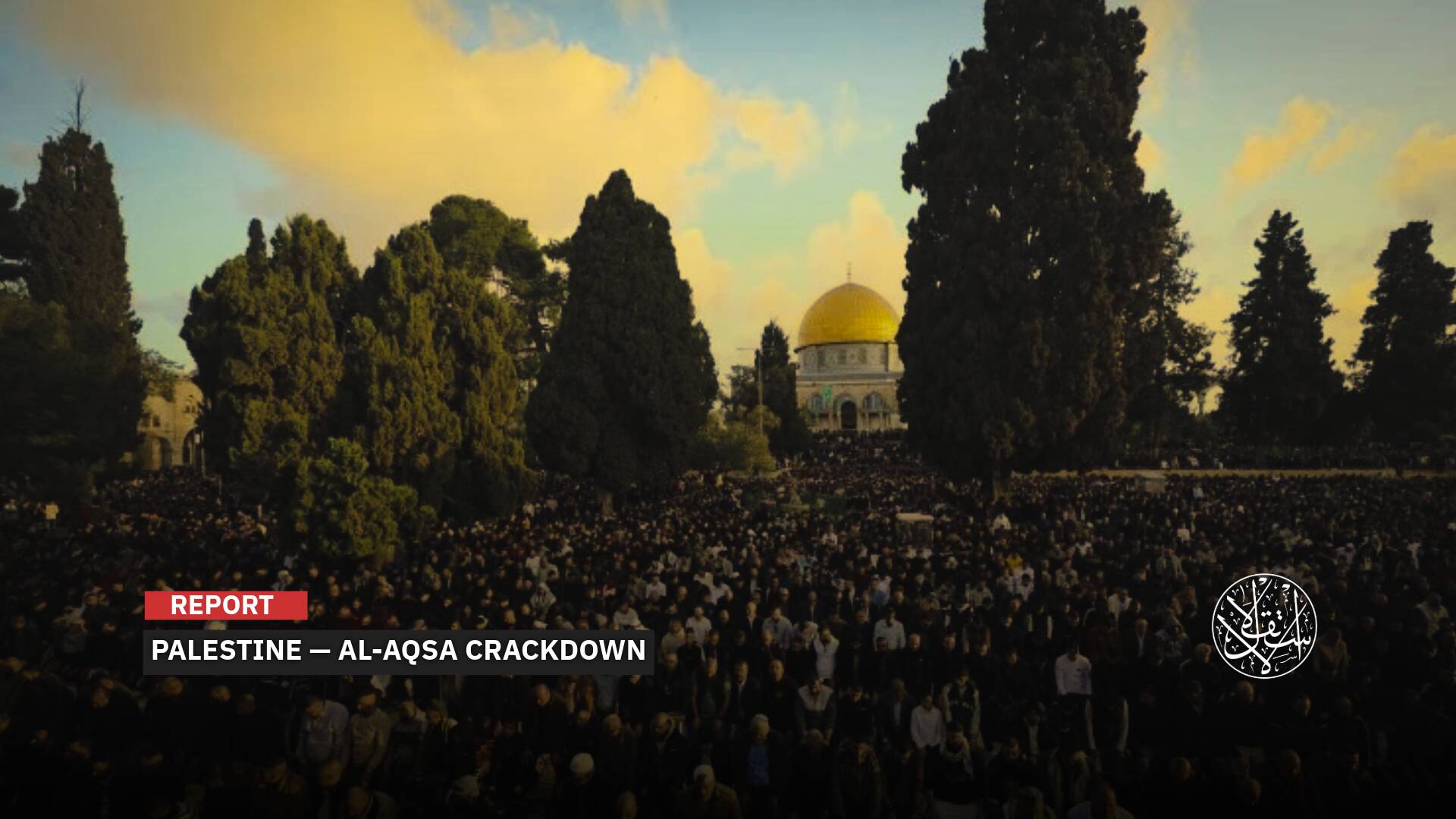Historic Muslim Victories in U.S. Elections: Could Politics Be Changing?

Muslims’ record gains are reshaping American politics.
Amid celebrations over the election of New York’s first Muslim mayor, who defeated powerful Jewish business and pro-”Israel” Zionist lobby groups historically influential in determining winners, Western media largely ignored the victories of 37 to 41 other Muslim candidates in the U.S. elections.
The Council on American-Islamic Relations (CAIR) reported that 37 additional Muslim Americans won seats in the November 4, 2025, elections across nine states. These included mayoral offices, city councils, school boards, and judicial positions. Other organizations reported that the total number of Muslim winners reached 41. Observers expect this number to rise further in the 2026 midterm elections. In comparison, 82 Muslim Americans won offices in the 2022 midterms—covering Congress and state legislatures—out of 146 candidates, indicating a growing trend of political participation.
Many Muslims and political analysts consider these victories more than just numerical gains. They see them as an opportunity to inspire young Muslims to run for office, engage more fully in politics, combat Islamophobia, and demonstrate political maturity. The 2025 elections mark a historic turning point for Muslim American political influence, representing not just an increase in seats but a qualitative leap toward executive power and strategic political impact.
Breaking Records
Following the November 4 elections, CAIR announced on November 6 that at least 38 Muslim candidates had won. Muslim TV networks reported 42 winners on November 7. Victories included leadership of state legislative councils and membership in state legislatures (24 winners), mayoral offices in U.S. cities (6 winners), city council positions (9 winners), two judges, and numerous local and school board officials. CAIR reported that 76 Muslim candidates ran, with 38 victorious, marking a record both in candidacies and wins. The organization emphasized that these victories are not just for Muslim Americans; they are for all Americans who believe in justice, equality, and democratic participation.
Among the most notable winners were Zohran Mamdani, elected New York City’s first Muslim mayor, and Ghazala Hashmi, elected Lieutenant Governor of Virginia, making her the first Muslim woman in U.S. history to win statewide office, following Keith Ellison’s precedent as the first Muslim man elected to statewide office in Minnesota.
Abdullah Hammoud was elected mayor of Dearborn, Michigan, and Mohamed Bydon became mayor of Dearborn Heights, Michigan. Sam Rasoul, representing Virginia’s 38th District in the House of Delegates, is of Palestinian origin and faced intense attacks from pro-”Israel” lobbies for allegedly using the term “genocide” and describing Zionism as a “supremacist ideology,” yet he still won decisively with 70% of the vote.
Other mayors who won include Faisal Kabir of College Park, MD; Ted Green of East Orange, NJ; and Adam Alharbi, in a close race against Muhith Mahmood for Hamtramck, MI, with a likely Muslim victory expected in the December 2 runoff.
State and legislative-level winners included Ghazala Hashmi, who, as lieutenant governor, chairs the Virginia Senate and holds the tie-breaking vote, giving her direct influence over all major legislation. Atoosa Reaser won Virginia’s 27th District, and Alaa Abdelaziz became the first Palestinian American elected to New Jersey’s 35th District legislature.
CAIR emphasized that many Muslim candidates faced defamation, harassment, and overt Islamophobia, yet their resilience and dedication to public service sent a clear message that Americans rejected anti-Muslim campaign rhetoric and cheap political attacks.

Resounding Victories
In Dearborn Heights, Michigan, Hassan Ahmad was elected to the city council, while Kamal al-Sawafy and Mustapha Hammoud also secured seats on Dearborn’s city council. In Hamtramck, Michigan, Nayeem L. Choudhury, Abu A. Musa, and Youssuf Saeed won city council positions.
In Minneapolis, Minnesota, Aisha Chughtai won in the 10th District, Jamal Osman in the 6th District, and Aurin Chowdhury in the 12th District. In Paterson, New Jersey, Ibrahim Omar was elected to the city council for the 6th District. In Washington state, Mohamed Egal won a seat on the SeaTac city council, Rami al-Kabra was elected to Bothell’s city council, and Noreen Breyer secured a position on Bellevue’s city council. In Ohio, Nadia Rasul joined the city council in Hilliard, and Mohamed Omar was elected to Grove’s city council. In North Carolina, Haseeb Fatmi was elected as a city commissioner in Wake Forest.
Other notable wins included Hamdi Mohamed on the Seattle Port Commission, Nadeem Qayyum on the Northampton County Council in Pennsylvania, Siddiq Kamara as sheriff of Delaware County, Pennsylvania, and Yusef Salaam on New York City’s 9th District Council.
In judicial and county positions, Ajmeri Hoque became a municipal judge in Franklin County, Ohio, making her the first Muslim woman to hold a judgeship in Ohio. Before running, she had served as a defense attorney and assistant prosecutor and was among the lawyers who defended pro-Gaza student protesters who had been arrested. Only months after defending them in court, she ran and won a judicial seat, signaling that the Muslim community is no longer satisfied with electing lawyers to defend them—they are now running to become the judges making the decisions. Soma Syed was elected to the New York Supreme Court in the 11th Judicial District.
In school boards and education councils, Mohammad Alhawawsha won a seat on the North Olmsted Board of Education in Ohio, Alisha Khan joined the South Brunswick Board of Education in New Jersey, and Alisha Khan was elected to the Westerville School Board in Ohio. Kareem Moffett won a seat on the Cincinnati Public Schools Board in Ohio, Habeebah Haqq joined Piscataway’s Board of Education in New Jersey, and Yusef Salaam and Shahana Hanif won seats on New York City’s 9th and 39th District councils, respectively.
The number of Muslim winners is expected to increase with upcoming runoff elections on December 2, 2025. Among the key contests are Akbar Ali in Georgia’s 106th District for the House of Delegates, Bedria al-Abdullah in SeaTac’s city council (vote recount), and Tanmay Shah for Cleveland, Ohio’s city council (vote recount), among others. CAIR and CAIR Action noted that these totals could rise further, with four additional races awaiting vote recounts or runoff elections.
CAIR and CAIR Action will release a final report on the election results and a new guide to elected Muslim officials for the 2025–2026 period in January 2026.
While Zohran Mamdani is ineligible to run for U.S. president because he was not born in the United States, Democratic Governor Gavin Newsom is considered one of the leading candidates for the 2028 presidential election. After Democrats had retreated following Donald Trump’s return to the White House, they scored sweeping victories in local elections in New York and elsewhere, particularly in California. Many of the winning Muslim candidates ran as Democrats, contributing to these significant gains.

Soaring Fast
The significance of the November 2025 elections lies in their role as a turning point in the political influence of Muslim Americans. This election cycle was not simply a numerical increase in seats; it represented a qualitative leap toward executive power, a challenge to Islamophobia, and a response to the long-standing neglect by American politicians.
Since 2010, Muslim Americans have carved out a story of political resilience and rise, choosing not to retreat but to double their engagement in elections and claim their place at the heart of U.S. politics rather than leaving the arena to those who oppose them.
Political experts suggest that the election of Muslim candidates, including Zoran Mamdani as mayor of New York City, has provided a significant boost for other Muslim candidates who feel marginalized or disillusioned by the American political system.
According to Religion News Service (RNS) on November 7, 2025, Mamdani’s historic victory is expected to inspire younger Muslims to pursue leadership roles, gradually reshaping politics in their favor. “Mamdani definitely has invigorated many Muslims around civic participation,” political consultant Salima Suswell told the outlet. “And I do think that there will be young Muslims who look up to him and want to follow in his footsteps, which I think is an amazing thing.”
Nabilah Islam Parkes, the first Muslim woman elected to the Georgia State Senate in 2023, noted that more Muslims are likely to draw inspiration from Mamdani and other Muslim politicians, as she herself had from the successes of Representatives Ilhan Omar and Rashida Tlaib. Muslim Network TV reported that these record-setting victories, from New York to Virginia, are reshaping American politics and increasing the influence of the Muslim community, despite anti-Muslim attacks and disinformation campaigns.
Progressive Democrat Abdul el-Sayed, a Michigan Senate candidate, said the rising number of Muslims in office is a reflection of a community with growing frustration with American politics. “So long as we continue to have a democracy, they can seek to express themselves in that highest order of citizenship, which is to run for an elected role in their government,” he told RNS. “And that’s a beautiful thing.”
Wa’el Alzayat, CEO of Emgage, a U.S. Muslim advocacy group that supported Mamdani, described his victory as a slap in the face to those who sow fear and spread prejudice against Muslims.
Political science professor Noora Siddiq at Michigan State University said Mamdani’s election energized Muslims who had lost faith in the political establishment and demonstrated the renewed potential of ascending from a state legislator to a city mayor in a short period. Younger progressive candidates will feel emboldened to run, moving more quickly from state legislative seats to mayoral or senate positions, according to Siddiq.
Sylvia Chan-Malik, a professor of Islam in America at Rutgers University, told the Associated Press on November 5, 2025, that Mamdani’s victory enabled “a collective sigh of relief from Muslim New Yorkers, which would ripple across the country.”
“The legacy of 9/11 and the War on Terror has wholly shaped the lives of entire generations of Muslims in NYC and beyond,” she added.
Political science researcher Youssef Shouhoud at Christopher Newport University said the victory sends a strong message: Muslims are not only part of the nation’s civil fabric but also actively shaping it and are ready to lead.
Mamdani won overwhelming support from Muslim voters, with roughly nine out of ten backing him, according to an Associated Press poll, despite Muslims making up only about 4% of New York’s electorate.
What the Victory Means
The broader implications of this achievement include greater representation for Muslims in U.S. politics. Electing a Muslim to lead America’s economic capital—New York City—symbolizes the evolution of Muslim political engagement, especially after decades of marginalization following 9/11. Muslim Americans are now a more effective electoral base, and their campaigns receive wide support both within and beyond Muslim communities. Muslim identity, once seen as a potential obstacle, is increasingly a mobilizing factor.
These victories come at a time when debates over identity, immigration, and religious discrimination are intensifying in the United States, making the success of Muslim candidates part of a larger societal shift, according to The Washington Post. Strong support from Muslim voters for Democratic candidates highlights their role as a key constituency within the party, particularly in major cities.
Candidates who openly embrace their Muslim identity and challenge opponents without apology, like the New York mayor, signal that future attempts to use anti-Muslim rhetoric as a political tactic could backfire. Perhaps most importantly, Muslim participation in elections continues to rise, potentially shifting the balance of power in key districts, especially in states with growing Muslim populations, and reshaping American politics.
This rising participation and electoral success also helps counter Islamophobia, though some fear that the wave of Muslim victories could provoke backlash. CAIR stated in a November 6, 2025, press release that success in elections is an important tool for combating Islamophobia.
The 2025 elections represent the latest stage in the growing political achievements of Muslims in America, a journey that began in 2010 when fewer than 20 Muslims held elected office nationwide. By 2020, that number had more than tripled. With 42 confirmed wins in 2025 alone, Muslims are no longer on the margins of American politics but are increasingly part of the mainstream.
The growing political presence of Muslims also reflects broader demographic shifts in the United States, where Muslims now make up roughly 1.3 percent of the population, about 4.3 million people, according to the Pew Research Center.
Sources
- CAIR, CAIR Action Congratulate 38 Muslim Election Winners, Report At Least 76 Muslim Candidates Nationwide
- 42 Muslim Americans win in US elections, marking record milestone
- Mamdani’s historic win as New York City’s mayor sparks excitement and hope among many US Muslims
- Mamdani win likely to give other Muslim progressive candidates momentum
- Palestinian American hails Virginia win: ‘You can be bold on the Gaza genocide and still be victorious’









